This author platform definition explains why platform is important, includes platform examples, and shows how to build an author platform. This article is for writers of all book genres: fiction, nonfiction, and children’s books.
This article is part of our free 15-part guide about How to Get a Literary Agent. If your goal is to Get a Fiction Literary Agent, Get a Nonfiction Literary Agent, or Get a Children’s Book Literary Agent you’ll find everything you need to know about author platform here.
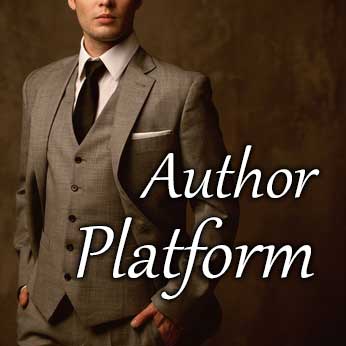

Website/Blog
Beyond having one or more social media accounts, having a website or blog helps strengthen an author’s platform. It establishes credibility, and literary agents prefer nonfiction authors be knowledgeable or somewhat known as an expert on the topic they’re writing about. For example, if you’ve written a self-help, business, spirituality, or science book, you can imagine literary agents might be curious about your expertise and standing in that area.
By the way, when you research book agents, you’ll see some (not many, but some) of them don’t have websites. You’ll probably think to yourself, Gee, how committed or successful can those people be if they don’t have websites? Literary agents think the same thing when they see nonfiction authors without websites.
Leadership Roles
If you see a literary agent say something in their bio like they’re President of the Authors Guild and the former President of the Association of Authors’ Representatives, you’ll have greater respect for them and believe in them more. Your perception of their professional ability and standing in the literary agent community will improve. Literary agents react similarly when reading about authors pitching books.
Is there anything in your background regarding leadership roles you might communicate to literary agents? Something that might make them believe you could do a better job than someone else writing a book like yours. Or something that would make them believe you could do a good job promoting your book. Is there a new leadership role you could take on that would be good for you and help with literary agents?
Experience, Recognition, Awards, and/or Accomplishments
Have you accomplished something noteworthy or received recognition relevant to the content in your book? Those things will make literary agents believe you can do a better job than other authors writing a book like yours. Those things will also help literary agents believe you’re in a better position to promote your book well.
For example, maybe you’ve written a novel about someone running a winery, or you’ve written a nonfiction book about how to make wine. If so, have you done extensive research? Traveled extensively to Napa? Been a winemaker? Won awards for your craft wine?
What about writing awards? Winning or placing in book contests, even for a different genre, is proof you’re an above average writer. Just don’t spend money on writing contests if you’re on a tight budget. Writing competitions are often competitive, so this is more of a long-shot. And make sure you research any writing contest before entering it because some are more reputable and prestigious than others.
Now, let’s “flip the script” again for a moment.
What if you’re an author looking for a literary agent who represents children’s books? Wouldn’t you want a literary agent with a track record placing children’s books with major publishers? A literary agent representing authors who’ve won awards? A literary agent representing one or more bestselling authors?
You might take a chance on an unproven literary agent with no accomplishments or accolades–but you’d probably be less optimistic about what that literary agent might do for you. We all look for evidence that people, projects, and relationships we’re thinking about investing in aren’t going to be a waste of time.
Published Writing
When you research literary agents, you’ll see some of them have had articles published in well-known writer magazines and/or on well-known writer websites and blogs. You’ll trust those literary agents more than those who haven’t had articles published.
Similarly, literary agents will have greater faith in your ability–as a writer and as a promoter–if you’ve had something(s) published. That writing may or may not be related to the topic material in your book. Even if your published writing is about something else, it will reinforce the fact that you’re a competent writer.
- Fiction authors can have short stories published in popular or prestigious journals and anthologies.
- Nonfiction authors can have articles published on popular websites and blogs, or in well-known newspapers, magazines, newsletters, or journals.
Writing Published About You
You can also strengthen or build your author platform by having things written and published about you, your ideas, your writing, your business, or anything else you’re involved with or part of. If you’re a nonfiction author, it’s best if the exposure or coverage is about your knowledge or experience related to the material in your book. But it doesn’t need to be. Exposure is exposure. Literary agents know that if you can get exposure for anything, there’s a greater likelihood you’ll also be able to get exposure later to sell your book.
Interviews
One misconception that prevents authors from building their author platform prior to querying literary agents is that they need a book to do interviews. You don’t. You just need to be a good storyteller and/or have information/inspiration people will find interesting or valuable. That’s all you need to do any type of interview (TV, radio, podcast, print, or online).
You don’t need to do many interviews (or any) to get a literary agent. Especially if you’re a fiction author. In fact, regardless of your book genre, you should do most interviews after your book is published, using the coverage to sell books. But if you do one or two or a few interviews prior to querying, literary agents will know you have content people are interested in. They’ll know you’re willing and able to promote your book.
Speaking
Speaking is identical to interviews when it comes to building your author platform. In other words, you don’t need a published book to do speaking engagements–or to get paid for speaking engagements. You simply need to be a good storyteller and/or have information and/or inspiration people find interesting or valuable.
And, as with interviews, you don’t need experience as a public speaker to get a literary agent, especially if you’re an aspiring fiction author. But no matter what genre your book fits into, speaking is additional proof for literary agents that you have content that people are interested in, and that you’re willing and able to promote your book.
Author Education
You don’t need to be a college graduate or even a high school graduate to get a literary agent. You also don’t need to invest in books about writing; writer workshops, courses or classes; beta readers; a developmental book editor or copyeditor; or an author coach or consultant.
On the other hand, if you have the means and patience to invest in any of those things, they’ll likely make you better and will make literary agents trust your writing more. You might also be able to get influential people associated with those things to say they’ll help promote your book if it’s published.
Connections
Do you have connections that would make literary agents trust you more? That you might be able to do a better job writing a book like yours than someone else? Or that you might be able to do a better job than most authors promoting a book like yours? Personal, professional, or academic connections?
What about friends of friends?
Some writers have many connections. Many don’t have any. Remember, you don’t need everything you see in this author platform article to get a literary agent. These author platform examples are to challenge you to do some things–and ensure you communicate everything you do have to literary agents.
Email List
Most aspiring authors don’t have large email lists, and there’s no easy way to quickly build a large email list without spending a lot of time and/or money. That’s why this option appears near the end of this list of author platform examples.
Building an email list is not a strategy most authors should consider or spend much time on when trying to get a literary agent. You’ll get a greater return focusing on some of the other author platform examples explained above.
Celebrity/Fame
Most unpublished authors (and most published authors) aren’t famous. If you’re not a celebrity, there’s probably not much (or anything realistic) you can do to change that. That’s why this item is at the very bottom of this list of author platform examples.
The only reason celebrity is mentioned in this author platform article is to acknowledge a truth that should be self-evident: Literary agents like authors who are famous or very well-known, because books written (or ghostwritten) by such authors usually sell a lot of books. However, very few literary agents will reject you just because you’re not famous.
Author Platform – Conclusion and Invitation
When it comes to author platform, literary agents often say, “Show me proof, not promises.” In other words, book agents aren’t persuaded by authors who simply say they’ll follow any promotional strategy a literary agent or publisher might suggest. They’re also not persuaded by promises to promote a book using “every marketing strategy known to humanity.”
Those things are air.
They don’t have weight.
Don’t get me wrong. Literary agents like seeing promises–but those promises are better when paired with concrete details about specific things you’ve already done. Things that make your promises plausible. Agents like proof the promises will happen.
So, when it comes to building your author platform–and explaining your author platform to literary agents in your query letter and/or book proposal–take your time.
Do it right.
And if you want to talk about the best way to improve or build your author platform (and you’re not already a coaching/consulting client), click here to learn about scheduling a 1-on-1 Literary Agent Advice Session. During the session we’ll talk about the best strategies for your unique situation, and the most effective and efficient way to implement them.
This article, “Author Platform Definition – Create or Improve Your Platform?” was written by Mark Malatesta, former literary agent turned author coach, and creator of The Directory of Literary Agents, host of Ask a Publishing Agent, and founder of Literary Agent Undercover and The Bestselling Author.
Mark has helped hundreds of authors get offers from book agents and/or traditional book publishers. Writers of all Book Genres have used our Literary Agent Advice coaching/consulting to get the Top Publishing Agents at the Best Literary Agencies on our List of Literary Agents.




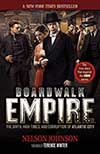

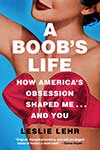

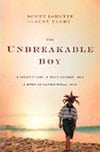

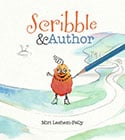
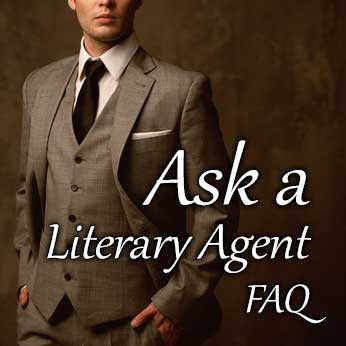
 MARK MALATESTA is a former literary agent turned author coach. Mark now helps authors of all genres (fiction, nonfiction, and children's books) get top literary agents, publishers, and book deals through his company
MARK MALATESTA is a former literary agent turned author coach. Mark now helps authors of all genres (fiction, nonfiction, and children's books) get top literary agents, publishers, and book deals through his company